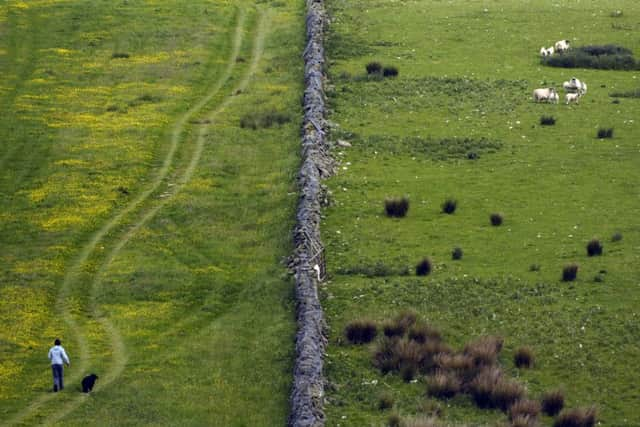7 numbers you should know this week


£10.3 billion - the amount of cuts Scottish councils were forced to make
Scotland’s 32 local authorities face an anxious wait ahead of next month’s spending review which is likely to result in severe cuts to council expenditure.
Advertisement
Hide AdAdvertisement
Hide AdGeorge Osborne will detail on November 25 how the UK Government will deliver its pre-election commitment to tackle the deficit.


The Chancellor has already indicated he wishes to reduce public spending further
170,000 Scots are out of work
Unemployment has increased by 18,000 people in just the past three months.
This now means that 6.1 per cent of the workforce are currently without a job.
The rise in the jobless total in Scotland is in stark contrast with the UK as a whole, where unemployment fell to a seven-year low while a record number of people are in work. The latest data from the Office for National Statistics showed across the UK the number of people out of work dropped by 79,000 to 1.7 million for the same period – the lowest figure since summer 2008, giving a jobless rate of 5.4 per cent.
One in seven Scots on antidepressants
In the past year, 814,181 Scottish people were prescribed antidepressants, new figures have revealed. People living in deprived areas were more likely to be dispensed the drugs, according to ISD Scotland statisticians. The rise was branded as “extremely alarming” by opposition politicians, who criticised the Scottish Government for failing to deliver on its promise to halt the rise by widening access to alternative treatments.
3.5 years - how much longer life expectancy is in the country
People born in rural and remote parts of Scotland are likely to have longer lives than those coming from cities, a new report on life expectancy has found.
Advertisement
Hide AdAdvertisement
Hide AdThe Registrar General said life expectancy for males born in remote rural areas is 79.5 years, 3.5 years longer than those from large urban areas.
Female life expectancy was also highest in rural parts of the country, at 82.7 years - 2.1 years longer than large cities, where life expectancy is at its lowest. The findings also confirmed people in the most prosperous areas were more likely to live longer than those in more deprived areas of the country.
10 Scots have won Nobel Prizes
With Angus Deaton winning this year’s Nobel Prize for Economics, Angus Deaton won for his work on health, wellbeing, and economic development, it’s time to look back at the other 10 winners of the award.
Sir Alexander Fleming won the Nobel Prize in Physiology or Medicine as a joint award with Howard Florey and Ernst Boris Chain.
Born in August 1881 at Lochfield farm near Darvel, Ayrshire, Sir Alexander Fleming went to Loudoun Moor School and Darvel School, and earned a two-year scholarship to Kilmarnock Academy before moving to London, where he attended the Royal Polytechnic Institution.
440 breeding pairs of Golden Eagles left
It is Britain’s second-largest bird of prey and in Scotland, illegal persecution and the reduction of food availability are the main reasons for their decline. Those that remain are most likely to be found in the Highlands and Islands with some pairs in the Borders.
£34 - the most expensive match day ticket
Scottish Premier League champions Celtic FC have the most expensive match day ticket in Scotland.
A BBC report found that the average prices of Scottish tickets, replica football shirts, match programmes, tea and even pies this season are still all lower than those of their English counterparts.
Advertisement
Hide AdAdvertisement
Hide AdAdult match day ticket averages also fell slightly, from £20.42 to £20.17. Season ticket averages for just under half (11) of the 24 teams the BBC surveyed increased by an average of £30. Currently, the cheapest average season ticket price in the SPFL is £299.75, with the most expensive sitting at £403.67.